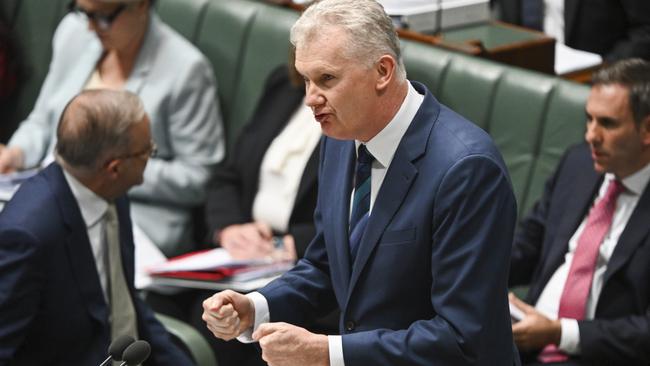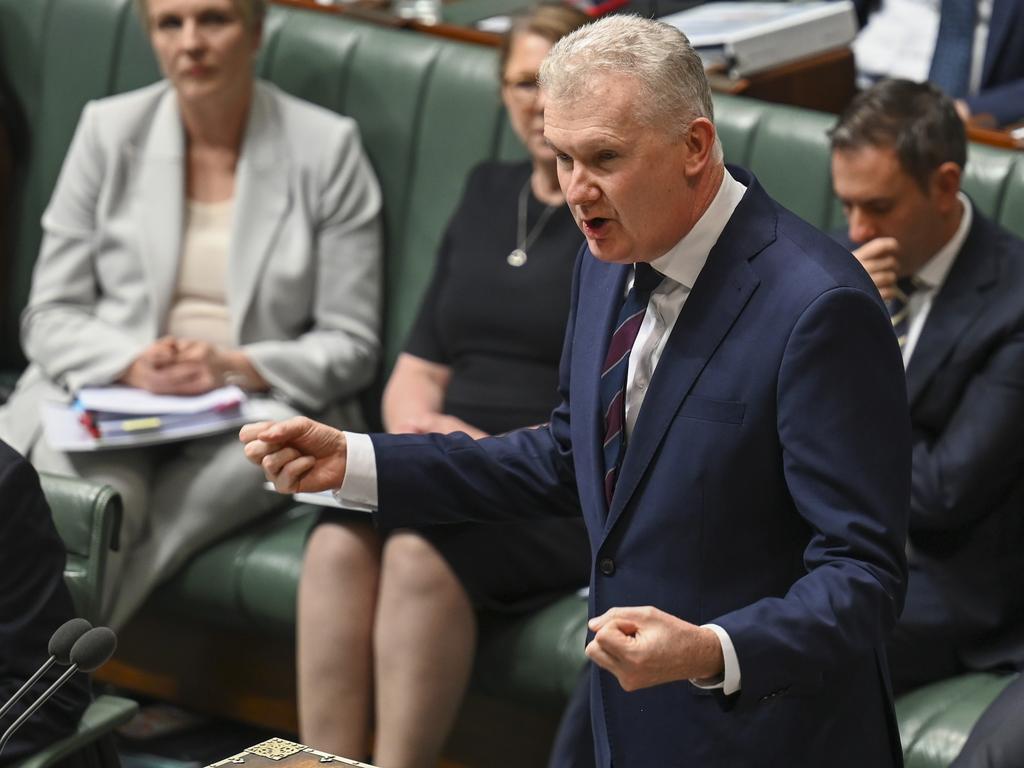Employers, business continue campaign against ‘same job, same pay’
Employers will continue to stand off with the Albanese government about changes to industrial relations rules.

Employer groups will continue to campaign against the federal government’s new same job, same pay test, despite a major breakthrough in negotiations between Workplace Relations Minister Tony Burke and the Australian Resources and Energy Employer Association.
Mr Burke is considering introducing a new test – the “multifactor test” – to stop specialist mining and energy contractors from being inadvertently caught up in the new industrial relations laws.
Under the proposal from AREEA, it would mean the Fair Work Commission would be guided by the new test to define what arrangements should and should not be considered labour hire for the purpose of same job, same pay entitlements and obligations.
Minerals Council of Australia chief Tania Constable said business agreed that service contractors in all sectors should not be subject to the changes that are due to come into effect in the second half of this year.
“The business community is united in its view that service contractors in all sectors of the economy should not be subject to same job, same pay legislation as they are not in any sense labour hire,” she said.

“The government needs to recognise that service contractors provide specific services, as opposed to labour hire, which are businesses that exist to provide workers.
“A simple and effective approach is to have a clear and straightforward definition of a service contractor that would exclude them from the same job, same pay legislation.”
Australian Chamber of Commerce and Industry chief Andrew McKellar said employers agreed service contractors should not be subject to the IR changes.
“Across the board, the business community agrees that service contractors should not be subject to the same job, same pay changes,” he said.
“The policy should only apply to traditional labour hire, being the provision of workers, and not to other arrangements such as contracts for specific services.
“Importantly, changes proposed to labour hire are just one aspect of a wider suite of measures set to alter Australia’s industrial relations laws.
“The business community will be actively campaigning to ensure other proposed changes – including to contracting, casual work, and the gig economy – don’t stifle Australia’s economic competitiveness.”
Business Council of Australia chief Jennifer Westacott backed other employer groups.
“Our submission is clear that contractors should not be included,” she said.
“The government needs to properly define what labour hire is. Business is united and the BCA is and will continue to be part of the campaign.”
Australian Industry Group chief Innes Willox said due to the “potential breadth and impact” of the government’s IR changes there are many “angles” that need to be worked through.
“We are continuing to consult with members and provide input to the government as they work through the implications of what they are considering,” he said.
More Coverage









To join the conversation, please log in. Don't have an account? Register
Join the conversation, you are commenting as Logout